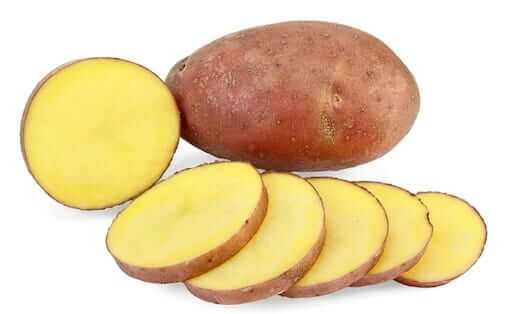Sweet Potato Nutrition
Although sweet potato nutrition is not often talked about, it holds many powerful health benefits for the body. Sweet potatoes are rich in important minerals, and are a healthy staple for any diet. When cooked, they are soft, sweet and are easily incorporated into many dishes. Find out how you can take advantage of sweet…
This post may contain affiliate links. Please read our disclosure policy.
Although sweet potato nutrition is not often talked about, it holds many powerful health benefits for the body. Sweet potatoes are rich in important minerals, and are a healthy staple for any diet. When cooked, they are soft, sweet and are easily incorporated into many dishes. Find out how you can take advantage of sweet potato nutrition to better your health.
Sweet Potato Nutrition Profile
If you enjoy sweet potatoes, you know how filling these vegetables can be. This is because they have a lot of fiber, which fills up your stomach more than other nutrients can. Fiber is also vital for blood sugar management because they convert foods into energy at a good pace. This way, you can enjoy sustained energy while preventing an overproduction of insulin.

Another noteworthy nutrient in sweet potatoes is potassium. Potassium has several uses, including regulating the metabolism, balancing the acidity of your fluids and supporting muscle function. Sweet potatoes have also been found to contain manganese, magnesium, iron and vitamins B, C and D. These nutrients are important for reducing cholesterol, keeping you energized, maintaining a healthy blood pressure and giving the immune system a boost.
Sweet Potato vs. White Potato
A comparison between sweet potato nutrition and white potatoes reveals that the former is slightly healthier than the latter. Firstly, sweet potatoes have more fiber and fewer calories while white potatoes are loaded with carbohydrates. It is also believed that the purple skin of sweet potatoes contain more antioxidants compared to white potatoes.
Although white potatoes have high vitamin content, sweet potatoes have both vitamins and essential minerals. Sweet potatoes, however, do have slightly less protein and potassium than their counterpart. White potatoes are also more absorbent of other flavors, while sweet potatoes have a sweet flavor that is compatible with a limited number of dishes and seasonings.
How to Cook Sweet Potatoes
To get the most out of sweet potato nutrition, the best way to prepare them is through baking. Potatoes are safe to eat with the skin on but you can peel it off if desired. Make sure you rinse them under cold running water to clean.
Step 1:
Set your oven to 375 F. Trickle a tablespoon of olive oil on your hands and rub your sweet potatoes to coat.
Step 2:
Stab the potatoes with a knife or fork several times all over their surface and wrap them tightly with foil.
Step 3:
Arranged the greased sweet potatoes on a baking tray or sheet, making sure there’s enough space between them. Bake them until they give in when squeezed or until a knife can glide in and out of them with ease. This should take 30-60 minutes. Serve.
Now that you know there is more to sweet potatoes than their sweet, delicious taste, aim to include more servings in your diet. Use them to make sweet potato pies, salads and even sweet fries. To reduce your calorie intake, serve them with healthy sauces and dips like almond butter, garlic butter or spices.



Leave a Comment